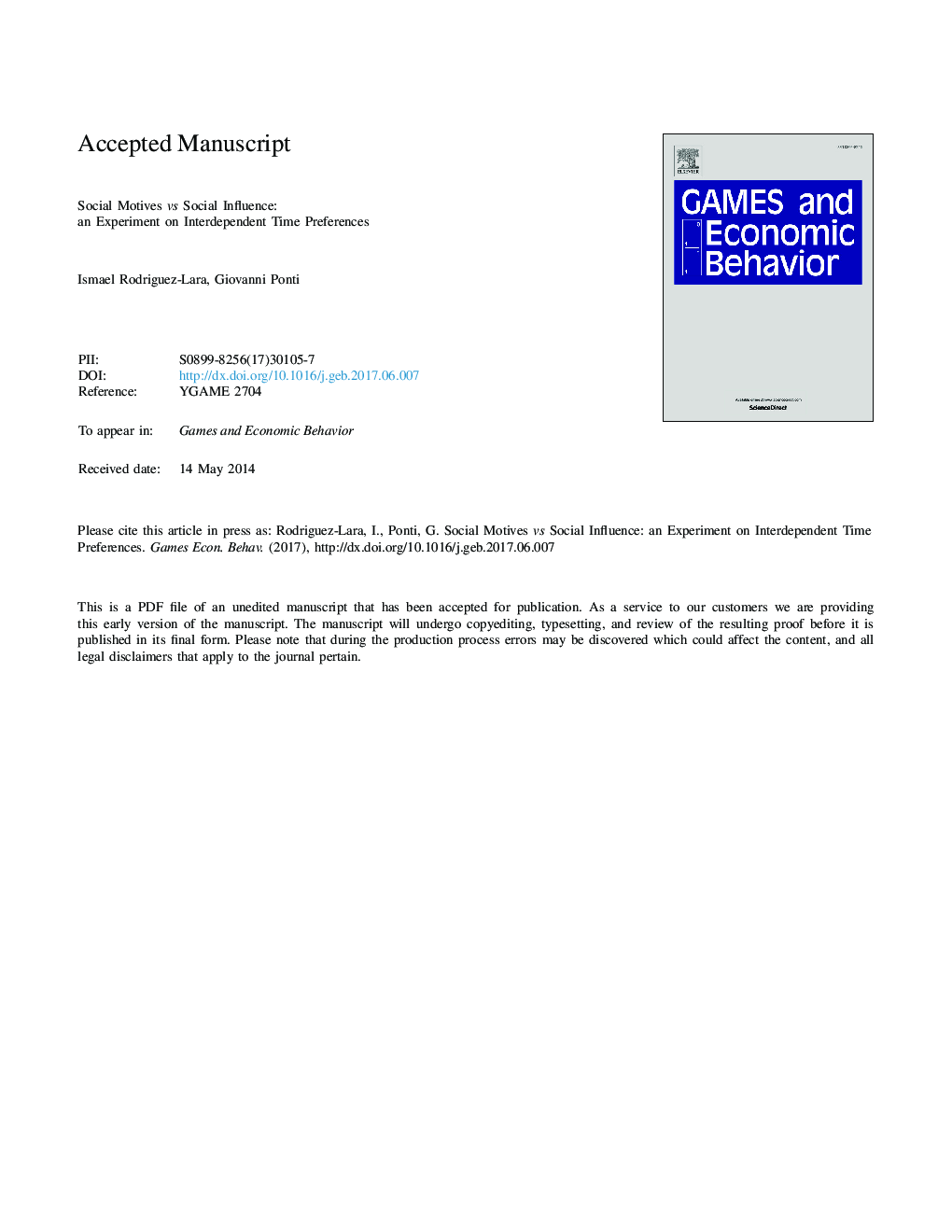| Article ID | Journal | Published Year | Pages | File Type |
|---|---|---|---|---|
| 5071398 | Games and Economic Behavior | 2017 | 37 Pages |
Abstract
We design an intertemporal Dictator Game to test whether Dictators modify their discounting behavior when their own decision is imposed on their matched Recipients. We run four different treatments to identify the effect of payoffs externalities from those related to information and beliefs. Our descriptive statistics show that Dictators display a marked propensity to account for the intertemporal preferences of Recipients, both in the presence of externalities (social motives) and/or when they know about the decisions of their matched partners (social influence). We also perform a structural estimation exercise to control for heterogeneity in risk attitudes. As for individual behavior, our estimates confirm previous studies in that high risk aversion is associated with low discounting. As for social behavior, we find that social motives outweigh social influence, especially when we restrict our sample to pairs of Dictators and Recipients who satisfy minimal consistency conditions.
Related Topics
Social Sciences and Humanities
Economics, Econometrics and Finance
Economics and Econometrics
Authors
Ismael Rodriguez-Lara, Giovanni Ponti,
